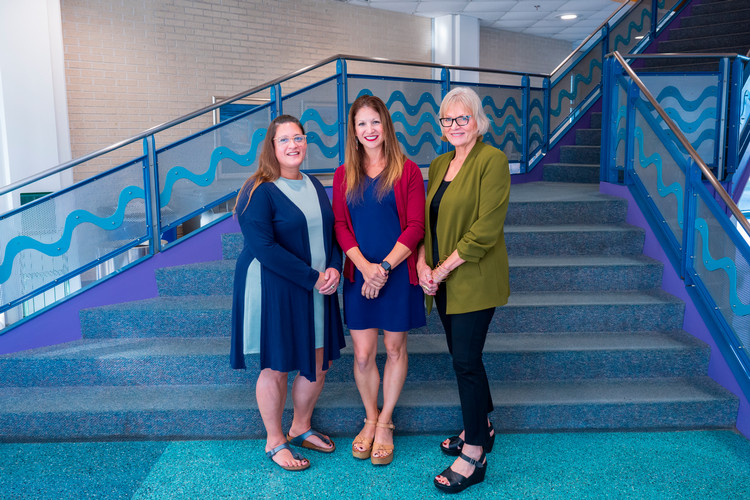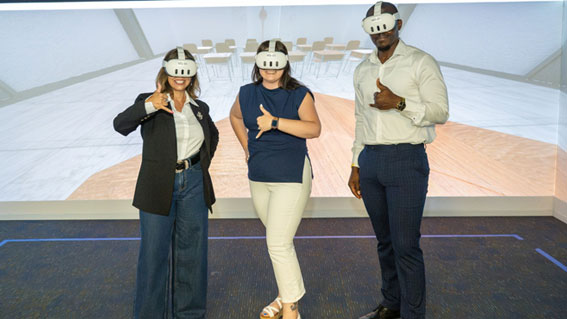Island University Welcomes Bachelor of Science in Elementary Education this Fall
CORPUS CHRISTI, Texas – Starting this fall, Islanders who plan to teach at an elementary school can enroll in the Bachelor of Science in Elementary Education (BSEE), which has replaced the Bachelor of Science in Interdisciplinary Studies (BSIS) at Texas A&M University-Corpus Christi.
Offered by the Department of Curriculum, Instruction, and Learning Sciences in the College of Education and Human Development (COEHD), the BSIS prepares students to become elementary or special education teachers through five specializations:
- Core Subjects Early Childhood (EC)-Sixth Grade, Bilingual
- Core Subjects EC-Sixth Grade, Reading
- Core Subjects EC-Sixth Grade, Science, Technology, Engineering, Mathematics
- Grades 4-8 Mathematics
- EC-12th Grade Special Education
The change is a result of new legislation that was approved in 2019 after a coalition of College of Education Deans from across the state met with lawmakers to reconsider existing legislation that limited the issuance of education degrees.
“It was a great privilege for me to participate in the bill development process that ultimately became House Bill (HB) 3217. This bill, part of the larger state HB3 for transforming education, was formulated to allow an individual applying for a Texas teaching certificate to hold a bachelor’s degree in education,” COEHD Dean David Scott said. “Previously, since 1987, bachelor’s degrees in education were not allowed in Texas, which is a fact not widely known by much of the general public.”
The BSIS degree plan has its roots in the 1987 Texas Standards for Teacher Education, which called for “a high quality, well-rounded education that includes a grasp of the humanities, the natural and social sciences, mathematics and fine arts,” noted Scott. While that may have been the prevailing view in 1987, today’s teachers-in-training need preparation in culturally relevant teaching, technologically enhanced and virtual learning, social and emotional needs of children, and differentiation of teaching for English Language Learners and special needs children, in addition to content and pedagogy, or the methods and practice of teaching.
Dr. Frank Lucido, Professor in Bilingual Education and Interim Associate Dean in the College of Education and Human Development, said the change in the degree will enable pre-service teachers to be fully prepared for the diverse and special needs student that are in today’s classrooms.
“Being in the field of higher education for over 30 years and about 20 years in PK-12 classroom teaching, I have seen the pendulum swing from a focus on pedagogy, to content, and now with the change in the degree to a more explicit pedagogy that engages the students in research-based best practices for diverse and special needs students’ success,” Lucido said.
“With the degree having a good balance between the content courses and how to teach the content with ‘hands on’ and ‘minds on’ learning, student-centered engagement will benefit all our PK-12 student populations in school districts,” he added.
Scott said HB 3217 also eliminated a crucial limitation that required a BSIS student to only take 18-semester credit hours to meet requirements for pursuing a classroom teaching certification in Texas. He added that today’s teacher students need a wide range of training and learning experiences to be successful in the classroom.
Dr. Kathleen Lynch-Davis, Chair of the Department of Curriculum, Instructions, and Learning Sciences, said it is an exciting time to be in teacher preparation in Texas because the return of education degrees in the state recognizes that well-prepared teachers have more than just a depth of understanding in content and teaching skills.
“The well-prepared elementary teacher understands the connections between the content they are teaching, the learners in the classroom, and high-leverage teaching practices to provide an optimal learning environment,” Lynch-Davis said. “Being able to offer a BS in Elementary Education will create opportunities to provide courses that will allow students to engage in this intersection in addition to courses in content and general teaching skills thus meeting the demands of 21st century learning.”

